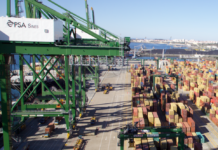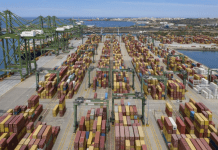Despite fears of a second wave of Covid-19, fuel markets rebounded last week, showing signs of improving fundamentals as global supplies continue to tighten.
MABUX Global Bunker Index for 380 HSFO rose slightly from US$283/mt on 18 June up to US$286/mt on 25 June, while VLSFO also saw a minor increase of US$4 (from US$337/mt to US$341/mt) and MGO LS presented an increase of US$8 (from US$411/mt to US$419/mt).

“Meanwhile, the pace of upward evolution has slowed somewhat and in the last two days we have even seen moderate decline,” commented a MABUX spokesperson.
The average VLSFO-HSFO global spread has seen a slight growth during the week and stands at US$46.98, which translates to an increase of US$3.02. In Rotterdam the spread between the fuels narrowed during the week to US$49.29 (-US$21.67), while in Singapore the index is steady at US$70.13 (+US$2.94).

MABUX said that it looks as though the scrubber’s story may come to an end, as the next Marine Environment Protection Committee meeting (at the International Maritime Organization) is currently working on a revised meeting schedule for the rest of 2020 and this is an opportunity for IMO to decide when, where, or even if scrubber discharges should be allowed.
 However, recently the International Council on Clean Transportation (ICCT) outlined the four-step process that the IMO should follow under a scrubber workplan:
However, recently the International Council on Clean Transportation (ICCT) outlined the four-step process that the IMO should follow under a scrubber workplan:
- Prohibit new scrubber installations
- Convert existing open-loop scrubbers to closed-loop
- Prohibit closed-loop bleed-off water discharges in places that should be protected and, finally
- Phase out existing scrubbers over time.
This process could take several years to negotiate and, if agreed, another two years to become enforceable, according to MABUX. Meantime, Clarksons reported up to 700 scrubber retrofits may be cancelled or postponed.
All in all, the global fuel market is at a crossroads: if demand continues to improve, the fuel market has a lot more to go on the upside; but if there is a situation where countries start to take steps back with the coronavirus, the market is going to go down.





